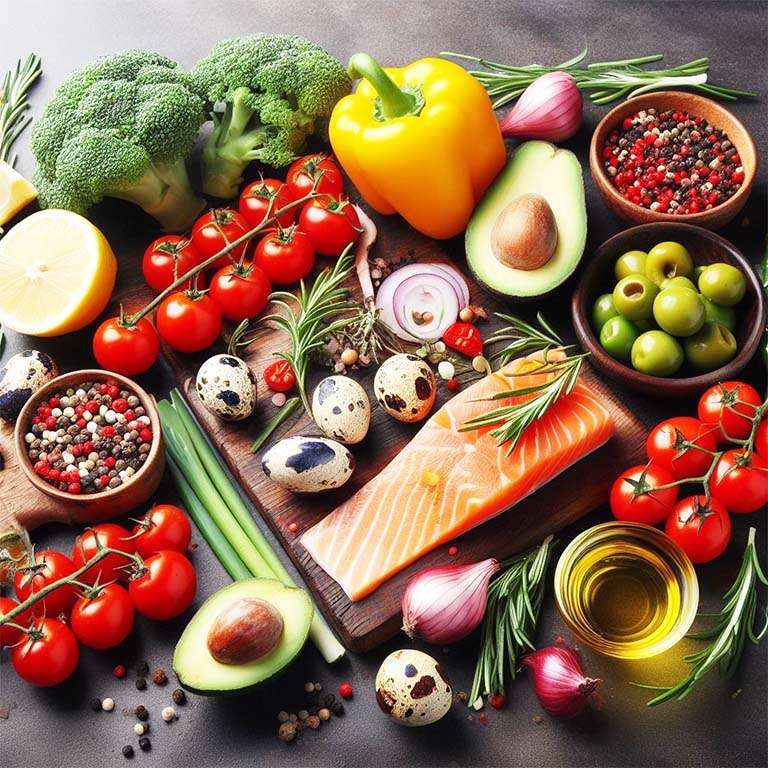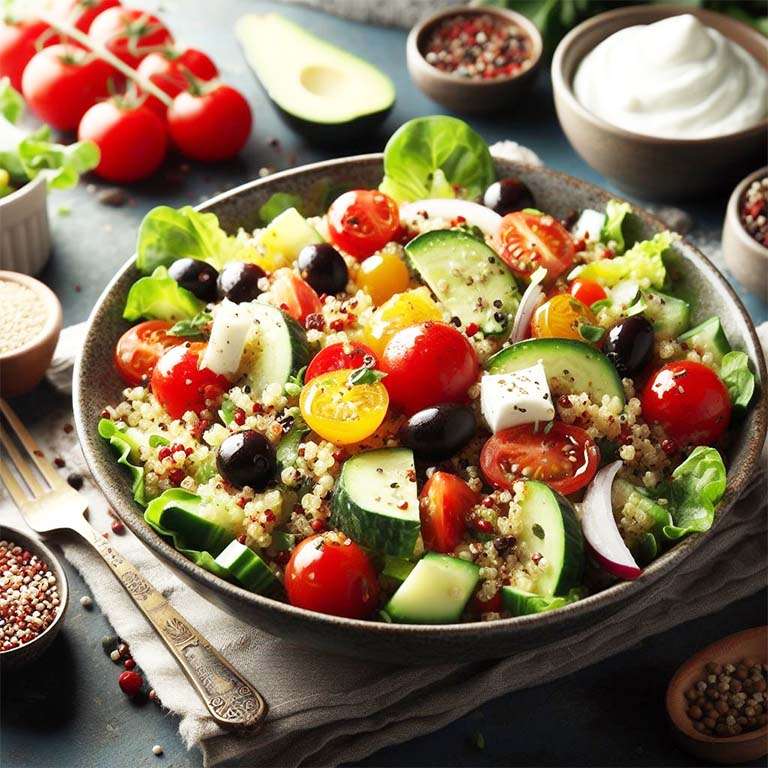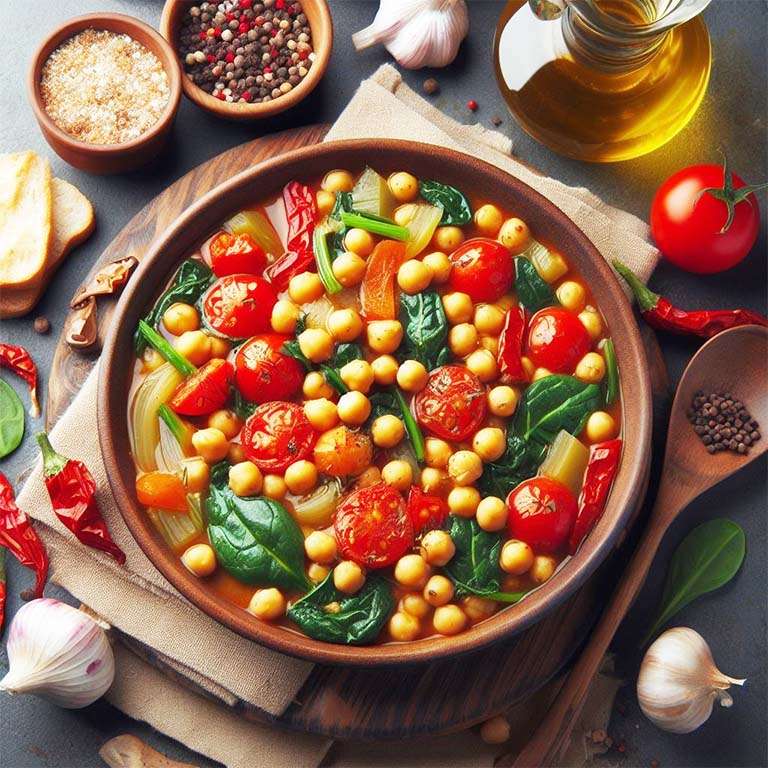Chronic pain is a common health problem that affects millions of people worldwide and is often difficult to manage effectively. In the search for alternative solutions, many people are turning to lifestyle changes, with the Mediterranean diet gaining attention for its potential to alleviate chronic pain symptoms. This article explores the basics of the Mediterranean diet, its potential impact on chronic pain, and offers three easy-to-prepare meals that follow this healthy eating pattern.
The Mediterranean diet is a beacon of health, inspired by the time-honoured eating habits of communities along the Mediterranean Sea. More than just a set of guidelines, it is a holistic approach to nutrition that emphasises whole, unprocessed foods. Fruits and vegetables take centre stage, accompanied by whole grains, lean proteins and the celebrated inclusion of heart-healthy fats such as olive oil, nuts and seeds. The Mediterranean diet also includes limited red meat and dairy, and focuses on fish, poultry, beans and eggs as primary protein sources. Many of these characteristics contrast with the standard American diet. However, one key difference is fat consumption. Dietary Guidelines for Americans 2015-2020 recommended consuming 10% of total energy from saturated fats. The average American eats about 19% of their energy from saturated fats. In the Mediterranean diet, however, saturated fats account for only 9%, with a greater emphasis on MUFA (monounsaturated fatty acids) consumption.(AS Kaushik et all)

At its core, the Mediterranean diet is a celebration of balance and variety, reflecting the region’s diverse culinary traditions. Rich in antioxidants and nutrients, the Mediterranean diet has attracted attention for its potential to improve overall health and well-being. As we explore the intricacies of this nutritional tapestry, we unravel a delicious and healthy approach that goes far beyond taste and offers a promising way forward for those seeking relief from chronic pain.
Chronic pain, a persistent and often debilitating condition, prompts individuals to seek various avenues of relief beyond conventional medical interventions. One such avenue that is gaining increasing recognition is the adoption of the Mediterranean diet. Let’s take a closer look at how this healthy approach to eating can offer a ray of hope for those struggling with chronic pain.
At the centre of the potential benefits of the Mediterranean diet are its powerful anti-inflammatory properties. Inflammation, a common denominator in chronic pain conditions, is a biological response triggered by the body in the face of injury or illness. The diet’s emphasis on fruits, vegetables and whole grains floods the body with antioxidants, compounds known for their ability to suppress inflammatory responses. By systematically reducing inflammation, the Mediterranean diet could help alleviate the symptoms of chronic pain.
Fatty fish, a hallmark of the Mediterranean diet, introduces a powerful ally in the form of omega-3 fatty acids. These essential fats are revered for their anti-inflammatory properties and have been linked to improvements in joint health. Chronic pain, which is often closely associated with joint and musculoskeletal problems, can be relieved by regular consumption of these omega-3-rich foods.
A key aspect of the Mediterranean diet’s appeal is that it provides a balanced and varied nutrient profile. Chronic pain is a complex interplay of factors, and a well-nourished body is better equipped to deal with the myriad challenges it faces. The inclusion of a range of nutrients, vitamins and minerals in the diet supports overall health and may address the underlying causes of chronic pain.
Embarking on a Mediterranean diet doesn’t have to be a difficult task. In fact, preparing delicious and nutritious meals within this culinary framework can be both simple and enjoyable. Let’s explore three mouth-watering recipes that not only adhere to the principles of the Mediterranean diet, but are also easy to prepare in the comfort of your own kitchen.
Ingredients: Quinoa, cherry tomatoes, cucumber, Kalamata olives, feta cheese, red onion, olive oil, lemon juice and fresh herbs.
How to prepare: Cook quinoa, chop vegetables and herbs, mix with olive oil and lemon juice and top with feta.

Ingredients: Salmon fillets, lemon, garlic, olive oil, fresh herbs (such as rosemary or thyme), salt and pepper.
How to prepare: Marinate the salmon in a mixture of lemon juice, olive oil, garlic and herbs. Grill until cooked through.

Ingredients: Chickpeas, tomatoes, spinach, red pepper, onion, garlic, vegetable stock, olive oil and Mediterranean spices.
How to prepare: Sauté onion and garlic, add vegetables, chickpeas, broth and spices. Simmer until vegetables are soft.

While the Mediterranean diet is not a panacea for chronic pain, adopting this lifestyle approach can offer a range of health benefits that may provide relief for some people. Incorporating nutrient-rich, anti-inflammatory foods into daily meals is a positive step towards managing chronic pain and promoting overall well-being. As with any dietary change, it’s important to consult a healthcare professional for personalised advice based on individual health conditions.